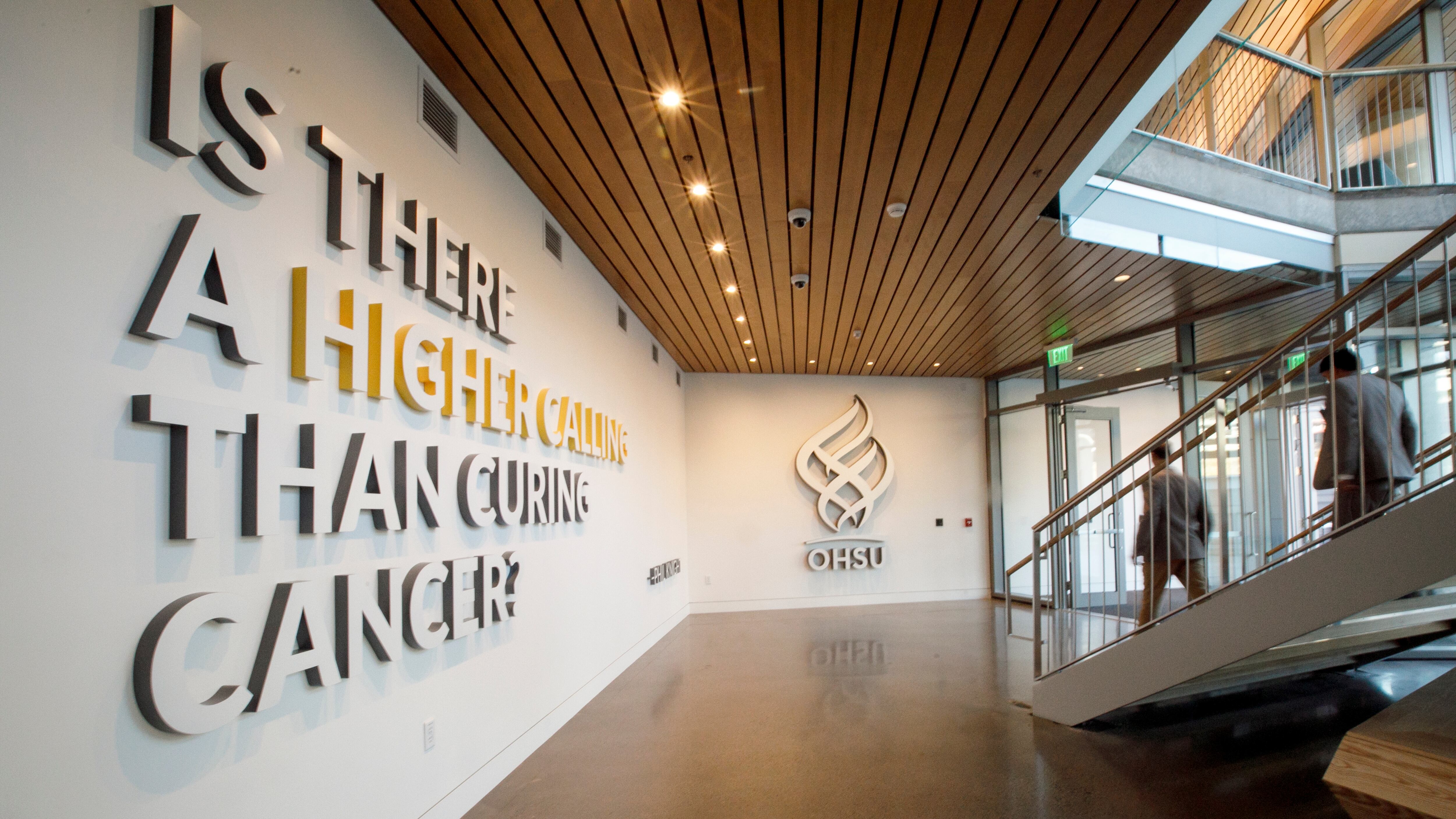ANXIETY GROWS AT KNIGHT CANCER INSTITUTE: Staffers at one of the Knight Cancer Institute’s tentpole research entities at Oregon Health & Science University have been feeling jittery about their jobs—and perhaps with good reason. In a Sept. 9 meeting, institutional leaders told faculty of major funding cuts being floated for the Cancer Early Detection Advanced Research Center. Incoming Knight Cancer Institute president Dr. Brian Druker was not present, but confirmed the meeting’s subject matter in a Sept. 16 interview with WW. He says the news may seem contradictory given the recent $2 billion pledge the institute received from its titular benefactors, Phil and Penny Knight. But Druker says the funds are largely earmarked for new programs, and the institute must budget sustainably in a rough climate for research funding. Talk of potential cuts is nothing new, he says, but the size and scope of what is being discussed was clearly upsetting, and he said the message was not delivered to staff compassionately. Indeed, several CEDAR employees reported frustrations about the largely unchecked rumor mill that formed among staff not present at the meeting. “Regardless of if this turns out fine and it was all a big misunderstanding, the way that nonfaculty employees are being treated is so appalling,” staffer Molly Brockway earlier told WW. She noted that the criticism did not apply to CEDAR’s director, Dr. Sadik Esener, who was on vacation when the meeting in question occurred. Esener says he returned Sept. 11. And he sent a note to CEDAR staff on Sept. 16 to address the many concerns he had heard: “No final decisions have been made, and I am working closely with Knight leadership to ensure that if changes are necessary, they are carried out in ways that minimize harm to our people and to our mission to defeat cancer at its earliest detectable state.”
FRIENDS OF TREES WILL WORK WITH CITY AGAIN: The city of Portland announced this week it will once again contract with the nonprofit Friends of Trees to plant trees across the city. The city abruptly ended its contract with the nonprofit in 2022, for reasons that remain largely unclear. But Friends of Trees is back: It’s been awarded a $1.8 million contract with the Urban Forestry division to plant 750 trees in the next two years and maintain the saplings for three years. The contract is just one piece of the city’s plan to increase its tree-planting numbers from 3,500 to 10,000 annually, and to eventually shift the burden and cost of street tree maintenance from homeowners to the city. Urban Forestry’s plan—to plant tens of thousands more trees and take on maintenance of all street trees—is funded by $117 million over a five-year period from the Portland Clean Energy Fund, a 1% sales tax on large retailers aimed at funding climate resiliency projects.
HIGH SCHOOL COSTS STAY STUBBORN: Portland Public Schools realized few savings in its quest to cut down construction costs at what promise to be some of the most expensive high schools in the nation. Under heat from the Portland School Board this past spring, the district’s efforts have lowered costs at Jefferson High School from a projected $491 million in October 2024 to $466 million, and Ida B. Wells High School from $455 million to $449 million, according to a staff memo from Dr. Jon Franco, the district’s senior chief of operations. Meanwhile, costs at Cleveland High School have slightly increased, from a $469 million budget to $473 million. That brings the total cost of the three projects up to about $1.38 billion. The district has budgeted $1.51 billion from two property tax bonds for the overhauls. The latest figures indicate that savings will likely total an additional $140 million, alongside the $190 million that the bond set aside for deferred maintenance upgrades. Per Olstad, a leader in the parent advocacy group Safe Structures PPS, whose work advocating for seismic retrofits bolstered the latest bond’s passage, says his group wants to reaffirm to the district that the savings was promised to seismic improvements. “There is a default presumption that that money will be used for seismic retrofits at K–8 schools,” Olstad says. “We want to remind them that this is not just general slush fund money. It is supposed to go for a specific purpose.”
CITY EMPLOYEE BASH CAUSES FRICTION: The Public Works service area at the city of Portland is throwing a Sept. 25 party for its 3,200 employees across four bureaus: parks, water, transportation and environmental services. The party arrives courtesy of deputy city administrator Priya Dhanapal, who wrote to employees earlier this month that the event would include therapy goats, food, wellness booths, games and a talent show. Dhanapal tells WW that the event, which she says has a current projected budget of $11,589, is a “modest gathering centered on employee appreciation, recognition and connection.” But not all employees are happy about it. Kari Koch, president of the 750-member City of Portland Professional Workers Union, says her members balked at the party last week during a meeting. “This is money the city is using when we just experienced layoffs and we’re cutting programs to the bone. And she’s prioritizing funding a party,” Koch says. “That’s the issue at hand. That’s what workers feel is inappropriate.” Employees within the service area, she adds, will staff their own party.

